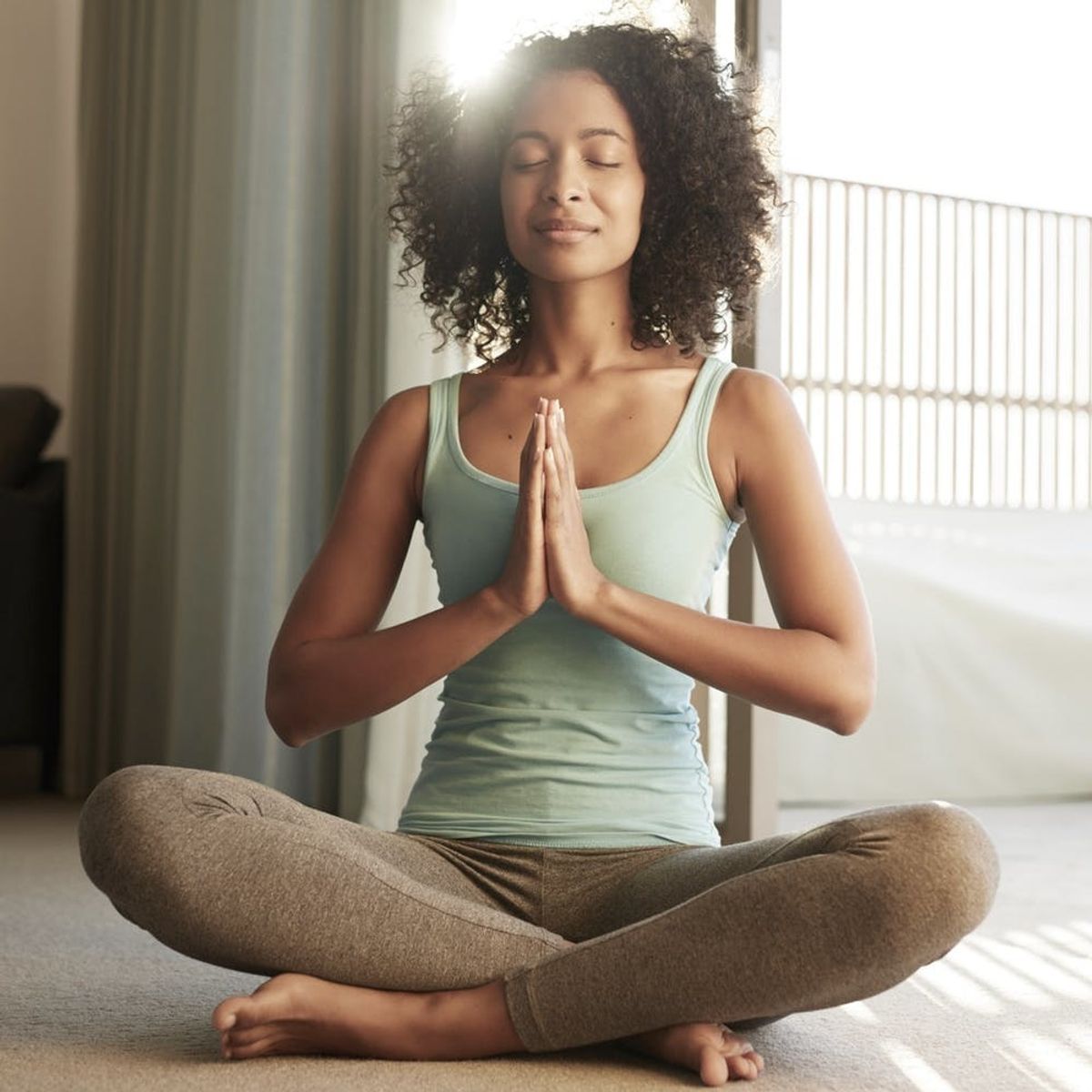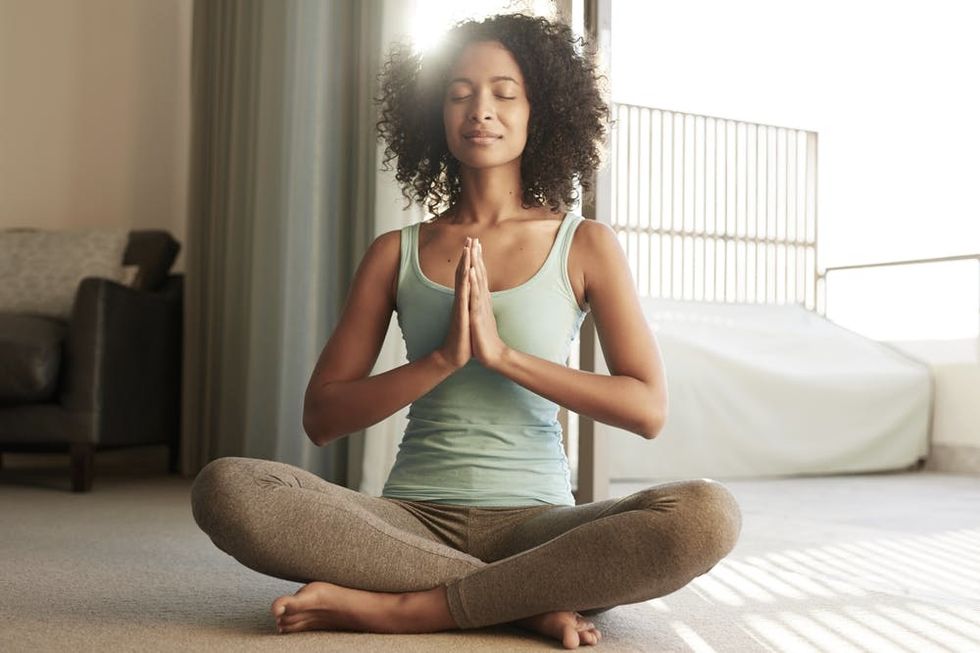Learn from the pros.
5 Practical Tips to Incorporate Mindfulness into Your Daily Routine

At this point, it’s pretty safe to say that mindfulness is more than just a passing trend among millennials. In the past few years, mindful practices have gained attention and grown more popular, so much so that the word “meditation” has become a familiar part of everyday conversation. Thanks in large part to meditation apps — with Headspace arguably leading the way — most of us are a lot more comfortable with the concept of mindfulness in 2017 than we were just a few years ago, and many of us are convinced of its benefits too.
Just because we understand the advantages of meditation, though, doesn’t necessarily mean it’s easy or natural to work the practice into our own lives. To that end, Headspace recently launched a new app feature called Everyday Headspace, which aims to do exactly what its name suggests. The feature offers unique themed meditations that are available on the app for just 24 hours at a time. Shaking up meditation options daily like this may be an incentive for users to log in more often so they can check out the new themes.
If the new app feature still doesn’t quite address your concerns about how to make meditation part of your daily routine, we’ve got you covered with some practical tips from the expert team at Headspace.

1. Trust the process. If meditation feels uncomfortable and unnatural to you no matter how much your friends swear by it, you’re not alone. The professionals can relate. “Even after years of practice, I still find myself doubting that it’s going to help me or thinking that I don’t have time,” says Headspace product designer Frank Chartrand. “But after just a few deep breaths, it doesn’t take long to sink into a familiar and calm meditative state and feel the benefits.” Don’t get discouraged!
2. Make meditation work within your routine. A regular mindfulness practice looks different for everyone. Yours should fit neatly into the rest of your life, instead of fighting against it. “My meditation practice blossomed when I appended it to other habits of mine,” says Matthew Savarick, who works on Headspace’s workplace wellness team. Savarick used to meditate reactively — when stress levels were through the roof — but he’s now made time to practice more proactively every day at set times that work with his schedule. “Now, I’m at the point where I can seamlessly blend mindfulness techniques into everyday life, running, arts and crafts, being with friends, walking my dog, and so much more,” he says.
3. Tie meditation to another specific habit. “I suggest incorporating your practice with another daily habit, such as going to the gym or getting ready for bed,” says Headspace customer experience detective Kenny Bonila. “Most days I meditate right after I finish my gym workout, which is something I do every day before going to work.” Choose an activity that happens in your daily routine like clockwork — brushing your teeth, dropping your kids off at school, going for a run — and start tagging your mindfulness time on to the end of that habit. It will keep meditation top of mind and will help you establish consistency with your practice.
4. Use meditation to help with your workouts. Ricky Ramsaran, who works as an agile coach on Headspace’s engineering team, has seen improvements to his workouts ever since he started doing a quick meditation session before he gets to the gym. “It allows me to step into the gym with a clearer mind and better focus, often resulting in a stronger workout,” he says. Following this tip has the added benefit of helping you tie your mindfulness to a daily habit, as recommended by the other Headspace experts.
5. Meditate when you feel distracted. If you’re still struggling to find the ideal time to meditate on a regular basis, tune in to when your brain starts losing focus each day. For Headspace’s director of editorial Kelton Wright, it usually happens around 2:30 in the afternoon. “That moment when I think, ‘Wait. What am I doing?’ is when I know it’s time to meditate,” she says. “I step away from my computer and either sit on the curb outside or in the stairwell, and allow those 10 minutes to remove me from the empire of the screen and remind me of my broader intentions for the day — and, honestly, for life.”
How do you make mindfulness part of your routine? Tweet us @BritandCo!
(Photo via Getty)










